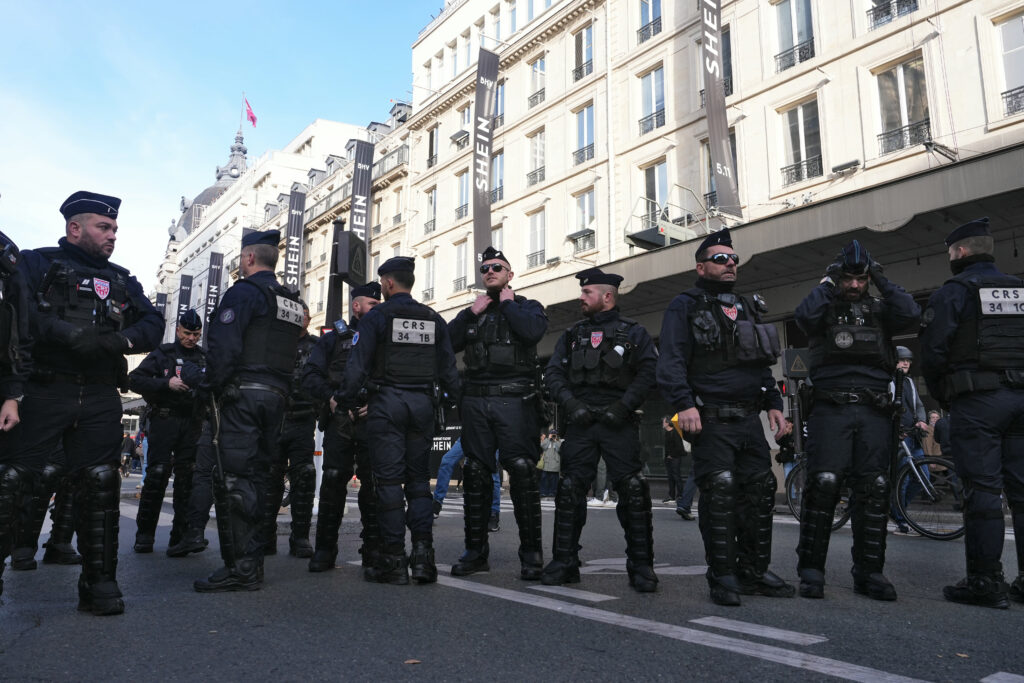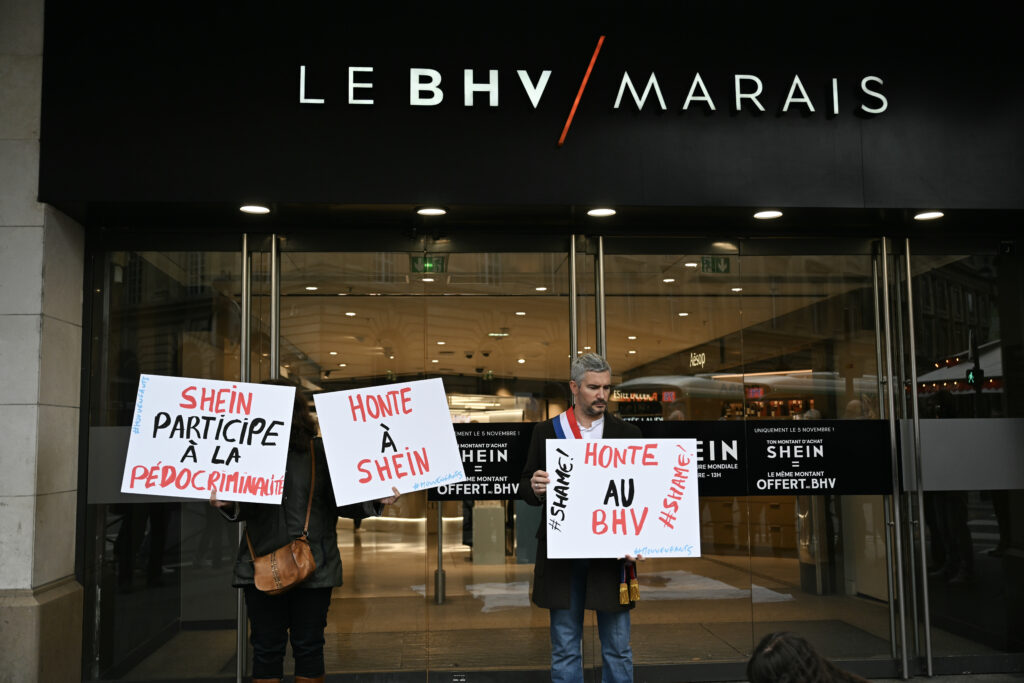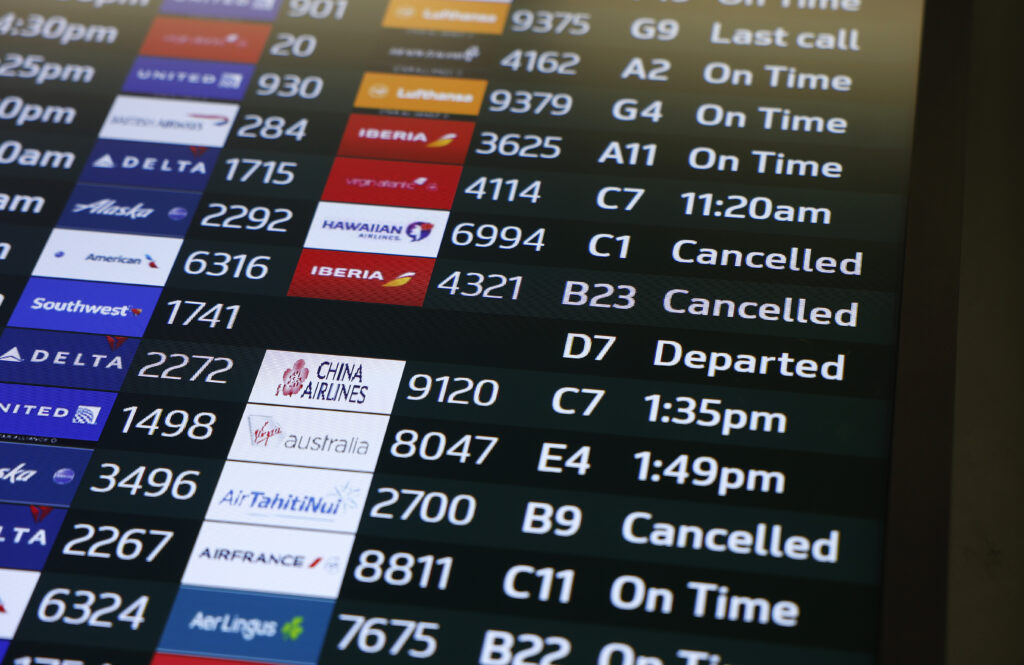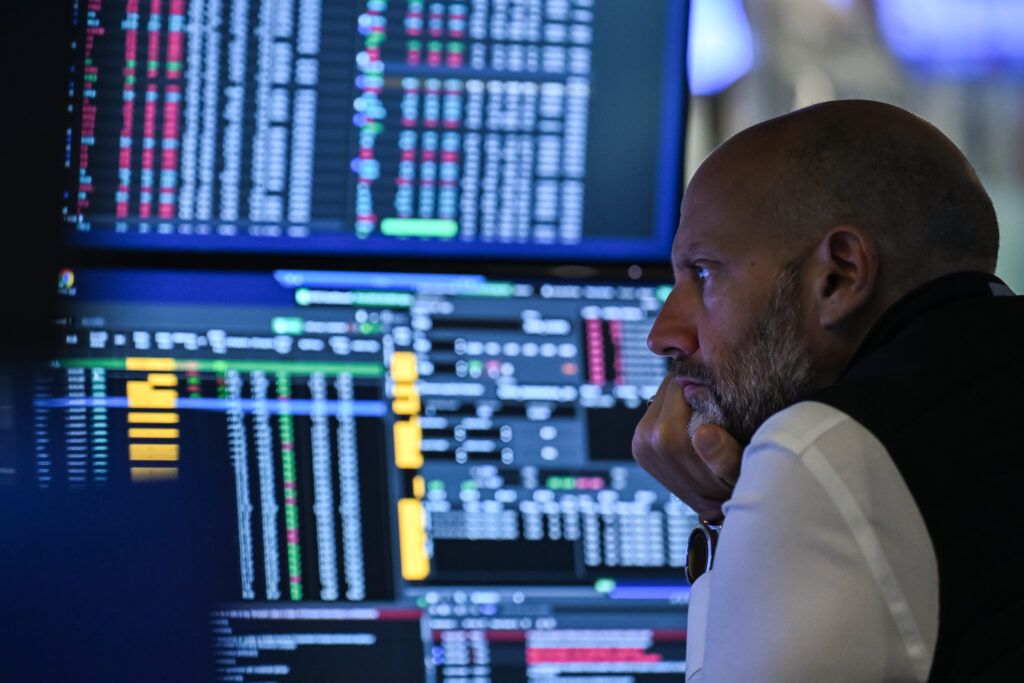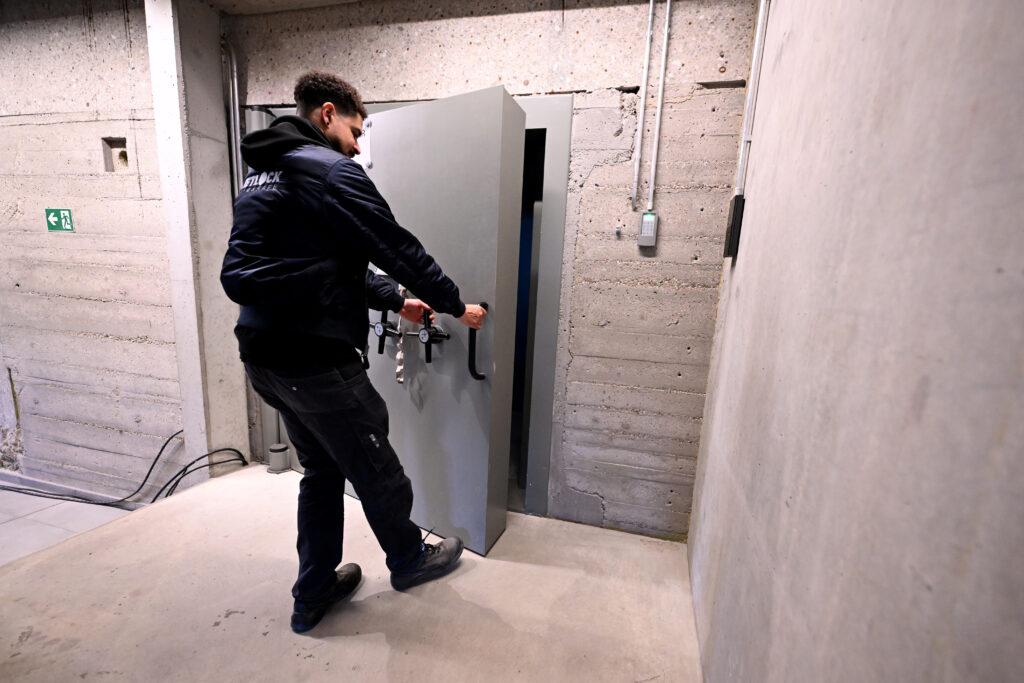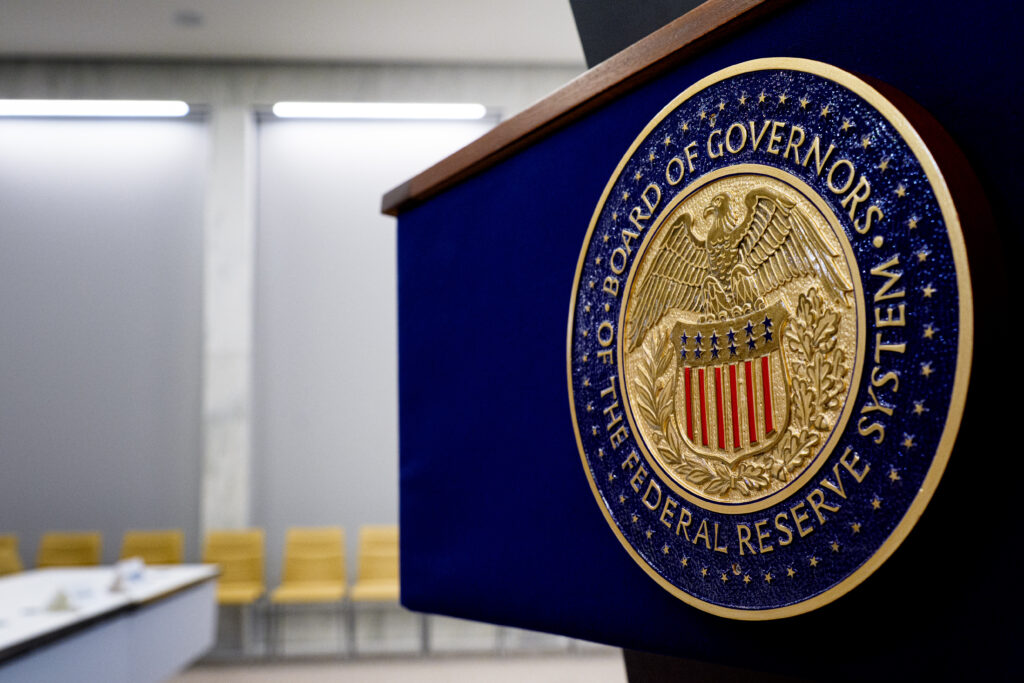France moves to suspend Shein website as first store opens in Paris
Shein opened its first physical store worldwide in Paris under the eye of riot police, as the French government said it was suspending the Asian e-commerce giant’s online platform following outrage over its sale of childlike sex dolls.Hundreds of shoppers streamed into Shein’s permanent physical store on the sixth floor of the BHV department store, a landmark that has stood across from Paris City Hall since 1856.Police patrolled the street and put up barriers, keeping nearby protesters from approaching the waiting shoppers. Soon after the launch of the shop, the French government said it was suspending the Shein digital platform until the company complied with French legislation.Despite an uproar in the couture capital over the Asian brand’s fast fashion business model and its environmental impact, the first shoppers queued for hours outside the luxury department store.Some of the crowd — ranging from older couples to mothers with young kids and trendy 20-somethings — said they arrived out of curiosity, while others pointed to the brand’s affordability.”Times have changed, generations have changed,” Mohamed Joullanar, a 30-year-old who already buys from Shein online, told AFP.”I’d never thought of going to BHV before,” the Moroccan masters student told AFP. “I always heard it was expensive, luxury products. But now, thanks to Shein, I’m here.”Hammani Souhaila bought a 16.49-euro ($18.93) T-shirt for her 17-year-old daughter at the store but expressed regret that the Shein items sold at BHV were “more expensive than online”.- ‘Crimes against children’ -Nearby children’s rights activists staged a protest.”We protect Shein and the culture of crimes against children while survivors of childhood sexual violence with their signs are pushed aside,” protester Caroline Di Ruzza from Mouv’Enfants, an association for the protection of children, told AFP.Leftist political groups gave speeches and distributed flyers, including one denouncing “suspected forced labour” and “pollution”, and urging passersby to sign a petition against Shein’s presence in the Paris store.Shein, which was founded in China in 2012 but is now based in Singapore, has faced criticism over working conditions at its factories and the environmental impact of its ultra-fast fashion business model, among other concerns.Its arrival in France has been opposed by politicians, unions and top fashion brands.Just days before the planned opening, a new controversy erupted over the sale of childlike sex dolls on Shein’s platform. The discovery triggered a new political outcry and the opening of a judicial investigation against Shein, and also rival online retailer AliExpress, over the sale of the sex dolls.But the queues still formed despite the uproar. “The dolls didn’t stop me from coming,” said Fatima Mriouch, a 48-year-old education worker. On Wednesday, the government said it was moving to suspend the Shein website in France “for the time necessary for the platform to demonstrate to the public authorities that all of its content is finally in compliance with our laws”.The retailer said it wanted dialogue with the French authorities, and separately said it was suspending products from third-party sellers in France.- Man arrested over childlike doll -In a new development, prosecutors said a man was arrested in southern France after ordering a childlike sex doll from China.The parcel did not come from Shein, prosecutor Jean-Luc Blachon told AFP.The man, who was taken into custody, had previously been convicted of sexual assault and “admitted to having ordered the doll for sexual purposes”, prosecutors said.Shein has already pledged to “fully cooperate” with French authorities over the probe into the retailer, and announced it was imposing a ban on all sex dolls.Frederic Merlin, the 34-year-old director of the SGM company that operates BHV, has said he considered pulling the plug on the partnership with Shein but later changed his mind.Merlin, who expressed hope that Shein will help increase footfall at the department store, made an appearance at the entrance shortly before the official opening. Shein is also scheduled to open five shops in other French cities, including Dijon, Grenoble and Reims.ole-hrc-sw-as/sjw/phz/jhb
